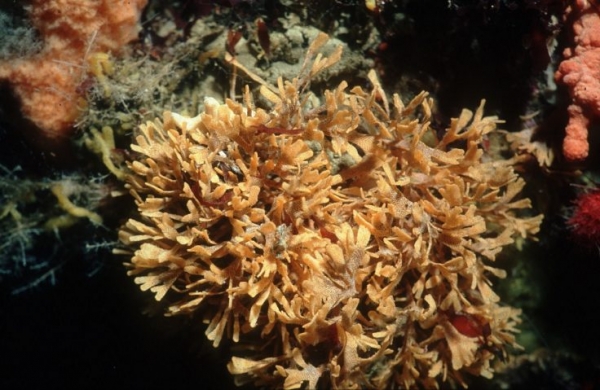Global warming and ocean acidification are threatening marine organisms, such as corals, bryozoans, molluscs, sea urchins or crustaceans, that build their skeletons and shells with calcium carbonate (chalk) according to a new study published this week in the journal Ecography.
An international team studied organisms with calcium carbonate skeletons from around Antarctica in the Southern Ocean. Calcium carbonate is more soluble in more acidic waters which contain more carbon dioxide (CO2), such as the colder waters of the polar regions, making it harder for these creatures to build their skeletons.
Studying Bryozoans
To carry out the study, researchers analysed the skeleton of a group of marine creatures called bryozoans (commonly known as moss animals), which are small filter-feeding invertebrates that live on the seafloor and can create complex habitats that enhance biodiversity.
Read more at British Antarctic Survey
Image: Kymella polaris, a cheilostome bryozoan, at 32m depth at Outer Island, Signy Island. This species is bilaminar (it is double sided with zooids on both sides), bright orange in life but fades to white on death. (Credit: British Antarctic Survey)


